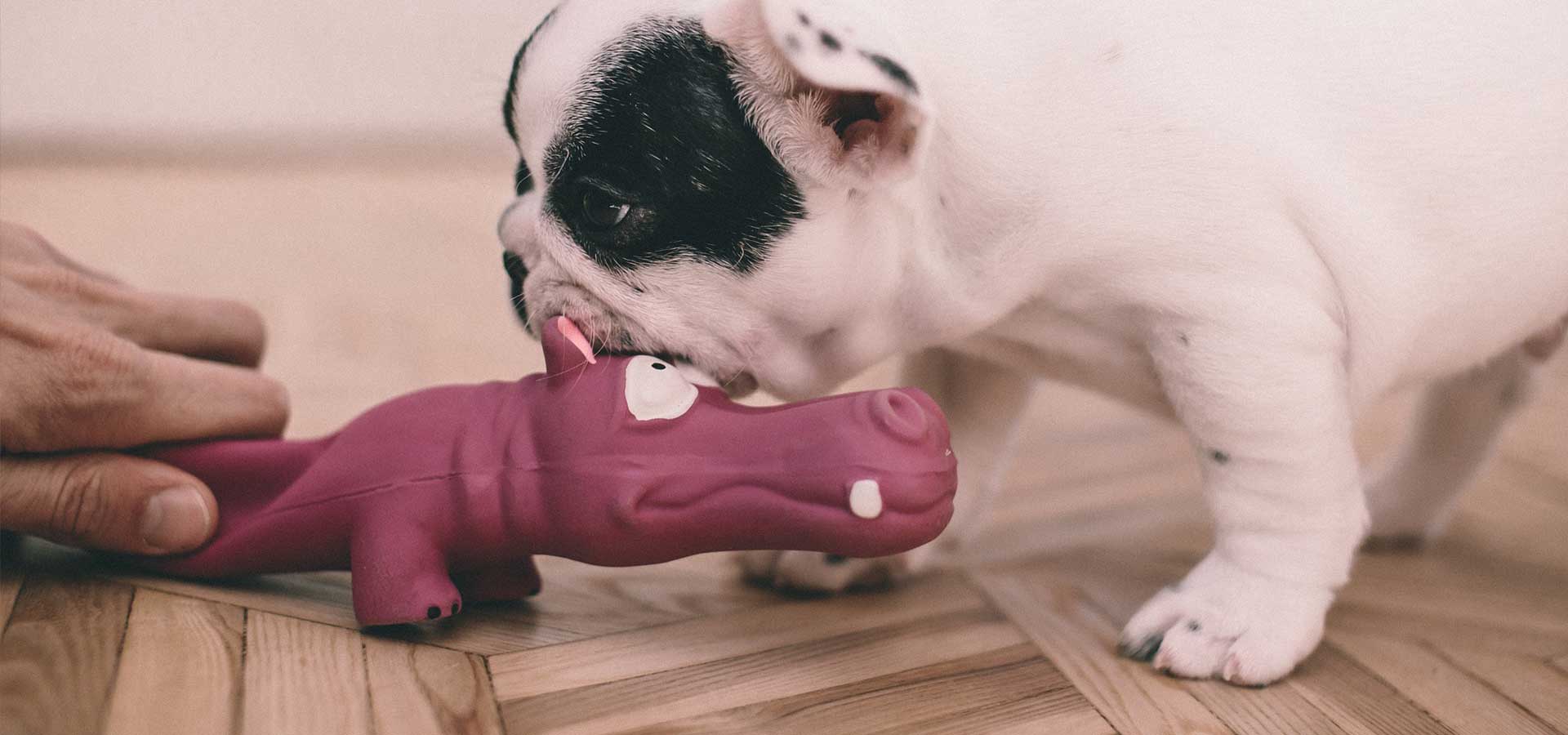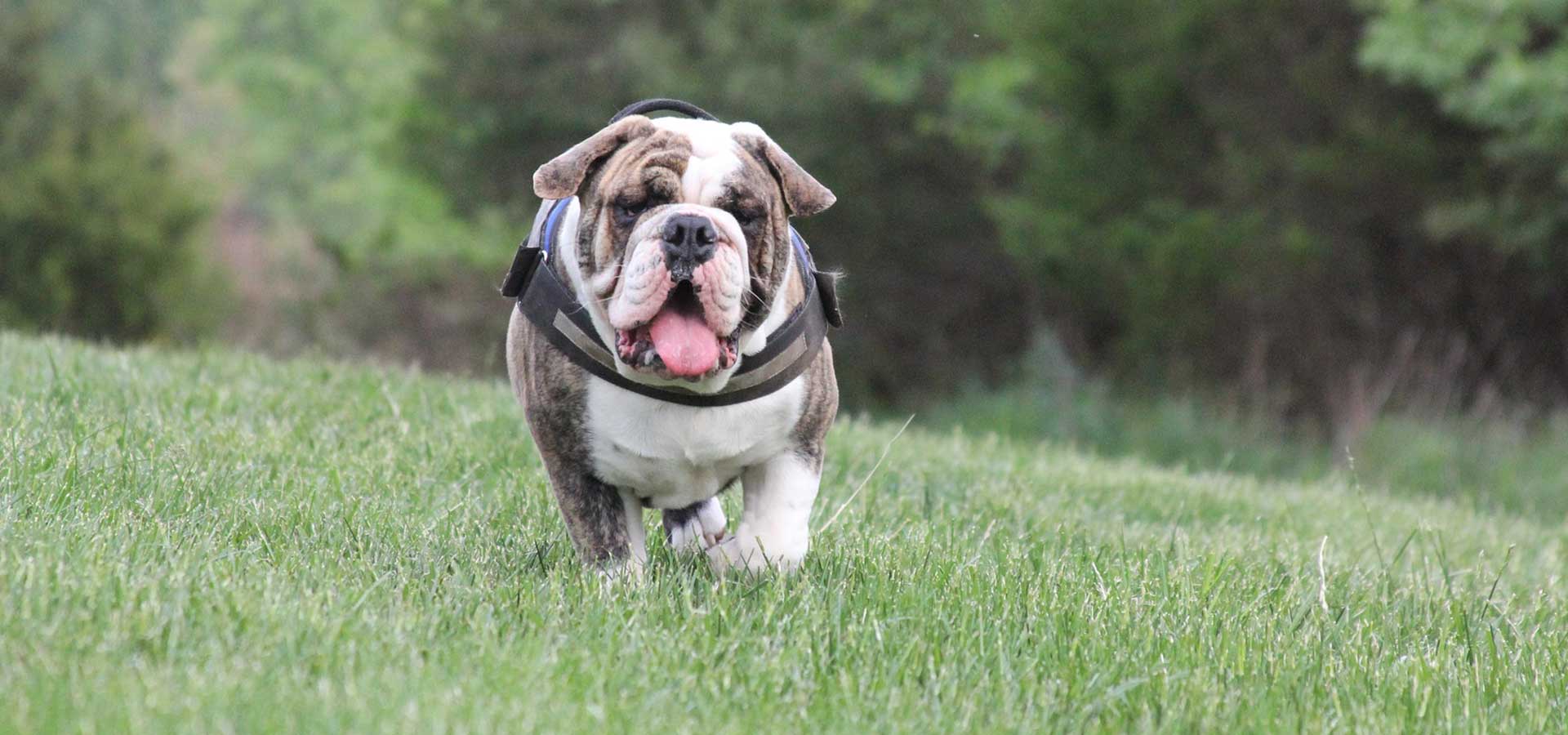Dogs are always on the hunt for food. Scavenging for food is in their nature, whilst dogs have lived with humans and become domesticated to their lifestyles; their origins as hunters is extremely instinctive and will never change. Wild dogs would often hunt for their next meal and often, would only find food to feed them for their next meal, this is why dogs are opportunistic towards food and will never turn down the offering of food. This ingrained trait helped wild dogs survive and will always be present in your pet's behaviour regardless of the dog breed.
Opportunistic by nature, your dog will find the smallest crumb whether outside or in their local park. Dogs have accustomed the “feed me” look to perfection and will often stare at their owners (whilst they’re eating) for them to share even a tiny morsel. Often, dog owners surrender to the stare and feed their furry friends and then the behaviour is repeated. It's best not to succumb to their begging ways and stay strong because most likely your dog is not hungry; they’re just greedy.
Dogs don’t have the same attitude towards food. Humans know when they’ve eaten enough, whereas dogs can carry on eating. This is why dogs are prone to obesity.
Domestic dogs work very hard to be constantly eating and as long as you understand their instinct nature and the reasons why, this will hopefully prevent you from becoming frustrated with their begging behaviour or overfeeding them. Dogs will eat past the point of being full and in the colder months will hoard and hide their food to provide themselves with a constant nibble.
Are you feeding your dog properly?
It’s worth checking that you’re feeding your dog the appropriate amount of food for their height, weight and breed. If you’re unsure no how much their eating, then speak to your local vet who will be able to advise on the right amount of food they should be eating and help maintain a healthy weight.
Health problems that contribute towards your dog being hungry
If you’re feeding your dog the correct amount of food and their still showing signs of increased appetite, or their attitude towards food has recently changed, then you should take your dog to the vets to rule out anything serious.
In some cases, dogs are constantly hungry as there is an issue with their health. Health problems such as diabetes. This condition prevents your dog from using their carbohydrates properly. This could be because their pancreas isn't producing enough insulin or their cells are not processing the insulin in the correct way. This results in the sugars that would normally feed your dog are not able to reach where they need to go. Thus, staying in their bloodstream and body which makes your dog feel hungry all the time.
Another health problem could be hypothyroidism. This condition is where the thyroid glands are under active and do not release enough hormones. This then slows the dog's metabolism down and resulting in them feeling hungry and becoming overweight.
Parasites can also be another reason as to why your dog is feeling constantly hungry. Parasites can cause serious issues with your dog's health. Any change in your dog's appetite can be a result of roundworm. Normally, your dog will suffer from stomach pains and diarrhoea. Deception is vital, but thankfully this can be treated with the right medication.
All of these conditions can have an impact on the health of your dog. If you are at all concerned then it's recommended to take your dog to the vets.




